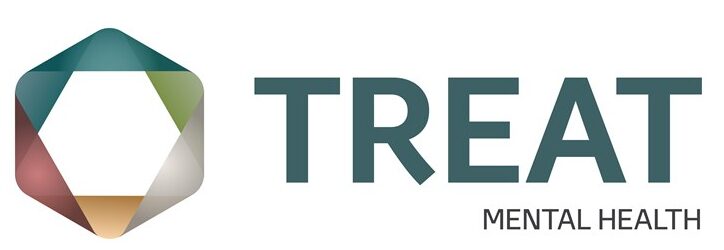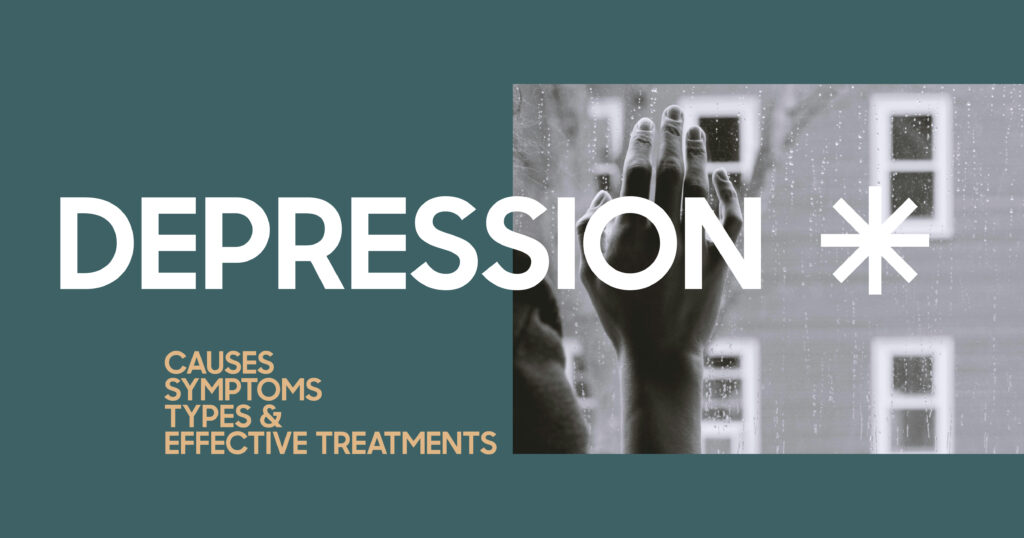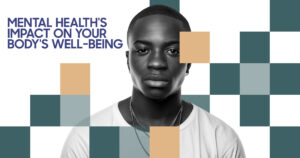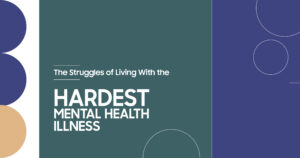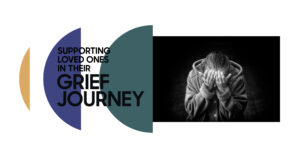Depression is a common mental disorder that affects hundreds of thousands of people in many locations. It can affect all aspects of mood, thinking, and behavior in a very chaotic manner. Understanding what depression is, recognizing the causes of depression, and knowing the different types of depression and treatment options for depression will support you in managing it.
This blog seeks to disclose the full scope of depression, from its causes to symptoms, diagnosis, and intervention, up to prevention.
What Is Depression?
People suffer from depression, and it is not simply sadness or a bad day. It is a whole syndrome affecting one’s emotional and bodily well-being. Depression symptoms can consist of long-term sadness and hopelessness while unable to enjoy anything as before.
Aside from the emotional symptoms, depression will also have physical symptoms such as changes in appetite, sleep-wake cycle, and increased amounts of fatigue. Causes of depression are literally infinite combinations of biological, psychological, and environmental components, making each case unique.
What Are the Types of Depression?
With so many types of depression, identifying what kind is paramount when it comes down to picking the form of depression treatment. The most commonly recognized type of depression is Major Depressive Disorder (MDD).
MDD is not the only disorder, although it is quite common. Another is Persistent Depressive Disorder (PDD) the former term for chronic depression. PDD is when a person has symptoms for two years or more. The chronically milder version is often chronic in nature and a tough case to resolve.
Another kind is Bipolar Disorder, which involves mood episodes from the extreme high of mania, or hypomania, to the extreme low of depression. Seasonal Affective Disorder (SAD) is another form of depression that the sufferer endures during certain seasons, usually winter when sunlight is short. Understanding these different categories aids the treatment process and the support system in fitting the individual’s needs.
Who Does Depression Affect?
Depression carries the potential to affect both genders and children indiscriminately. However, specific populations are thought to possess increased vulnerability to this disorder. For example, those with depressed relatives are at a higher risk, as genes play a significant role in the development of depressive disorders.
Stressors in life, such as financially stressful situations, breakdowns in relationships, or changes in an individual’s life situation, can trigger an episode of depression within an individual who has a genetic disposition to depression.
Long-term medical conditions further increase the likelihood that such individuals could develop depression, as the discomfort caused by these disorders can lead to helplessness and sadness.
This is why it becomes so important to understand that depression is nonselective. It poses an ever-present danger to anyone within a circle of all ages and genders. Signs of early clinical depression must be recognized since they can enhance success with a particular tool of therapy that would prove beneficial in preventing the disorder’s worsening.
How Common Is Depression?
Depression is one of the most widespread mental illnesses all over the world. More than 300 million individuals worldwide have depression, according to a report by the World Health Organization. In the United States, one out of about six people will have depression throughout their lifetime.
It is necessary because of the generality of depression to study its whole dimension and its symptoms so that individuals can get help as needed. It is a common condition, but treatment is available. The right depression therapy could get an individual back on their feet and lead a whole and rewarding life.
Signs and Symptoms of Depression
What Are the Symptoms of Depression?
Depressive symptoms can look like a variety of symptoms. It could be minor, or it can be significant and disruptive to half of the life of a person. Emotionally, depression usually comes with the sad feelings of sustained sadness, worthlessness, and guilt. Depressed persons might also lack interest in activities they once took pleasure in, such as hobbies or spending time with family and friends.
Physical and Emotional Symptoms of Depression
Fatigue, changes in appetite, and alterations in sleep can start interfering with the normal functioning of the body. Some insomnia may be present in some people, but others may wish to sleep far too much.
Concentrating and deciding on things become a challenge, and normally, one cannot function on daily tasks. In some extreme cases, depression may lead one to contemplate death or suicide.
Identifying these symptoms of depression is important, as early treatment prevents its worsening. If a person has shown the above signs for more than two weeks, it becomes important to approach a medical healthcare provider for an evaluation and therefore, treatment.
Causes of Depression
What Causes Depression?
The causes of depression remain undisclosed, as many factors play pivotal roles in its onset. Genetic factors assume a major role, for individuals with a family history of depression are more likely to develop it.
Chemical activity in the brain is also paramount in depression. Neurotransmitter imbalance (serotonin, norepinephrine, dopamines) is often implicated in the expression of depressive symptoms.
Factors Contributing to Depression
There are also environmental and psychological factors that may contribute to the actualization of depression. “Stressors,” usually considered painful life events like losing a loved one, economic hardships, or interpersonal relationships, can act as triggers to depressive episodes in people with a predisposition in particular.
Chronic illnesses that constitute an endangerment to depression, such as heart disease, diabetes, and chronic pain, may increase emotional distress in those coping with such health problems.
Diagnosis and Tests
How Is Depression Diagnosed?
Healthcare professionals perform an elaborate evaluative exercise to diagnose depression. This may include a very thorough physical examination in order to exclude other medical conditions that could be giving rise to the symptoms of depression. Blood tests may be ordered to rule out thyroid dysfunction or other medical problems that may have been confused with depression.
Your doctor will perform an extensive physical examination and then will probably carry out a mental health evaluation, with conversations about your emotional conditions, daily functions, and any notable life events. After a patient history, the doctor may administer some questionnaires on mental health symptoms to ascertain severity. The depression diagnosis and care are essential, since a correct diagnosis ensures a correct treatment plan.
Management and Treatment
How Is Depression Treated?
A combination of treatments are required based on how depressed a person is, and the person has a variety of depression treatment options available. However, a package of mental health therapy and medication is the most effective.
Mental health therapy is great for depression, particularly CBTs, which are a long-standing form of effective treatment of depression. CBT – Cognitive Behavioral Therapy, helps a person to change negative thought patterns, which in turn removes hopelessness and sadness.
Antidepressants like SSRIs and SNRIs are used to regulate mood by altering the balance of certain neurotransmitters in the brain. These medications will help mitigate some of the symptoms of depression and improve functionality.
When combined with psychotherapy and medication, lifestyle changes such as exercise, sleep hygiene, and diet can be highly beneficial to mental wellness. You should collaborate with your physician to arrive at the most suited combination of treatment options for managing depressive states.
Prevention
Can I Prevent Depression?
Fighting depression every time might not be quite feasible, however, certain things can be done to reduce the likelihood of developing it. Simply staying with more people, the better. Get out there, stay fit, and engage in activities that counter the pressures of life, such as yoga or meditation.
All of these factors will positively affect your mental well-being. Another important one is to voice your concerns about any signs or symptoms of depression at the earliest, so that the condition does not become worse.
Genetic susceptibility to depression might also present an opportunity for consulting with a mental health professional about management strategies for depressive disorders, helping minimize risks.
Treatment and Support for Recovery
It is a serious condition, but with treatment and support, depression can be managed and overcome. If people know about the causes and symptoms of depression, and can distinguish between the different types of depression, then at least they can get timely help, and their journey towards recovery is started.
Depression treatment options, such as mental health therapy, antidepressant medication, and changes in lifestyle, will help people get back the mental and emotional stability they deserve.
If you are facing depression or someone close to you, a trained professional should be made available to you immediately. The sooner the intervention is done, the better the chances for diagnosing and treating the numerous problems confounding depressed patients in an effort to better their prognosis and quality of life!
FAQs
What are the common causes of depression?
The causes of depression are genetics, chemical imbalances within the brain, life event stressors (stress), and physical medical conditions that have chronic somatic causes.
What are the signs of clinical depression?
Clinical signs of depression are a chronic sad state, decreased energy, also disinterest in what one used to enjoy, and eating and sleeping abnormalities.
How is depression treated?
Depressive treatment can be with mood or mental health therapy like CBT or IPT, antidepressant pills, and also lifestyle modifications.
Can depression be prevented?
While the risk is not always preventable, pursuing healthful living, building supportive relationships, and obtaining early medical care can all aid in diminishing that risk.
What are the different types of depression?
There are many types of depression, for example, Major Depressive Disorder, Persistent Depressive Disorder, Bipolar Disorder, and Seasonal Affective Disorder.

